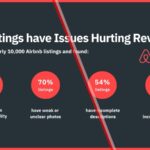Vacasa’s merger with Casago at $5.30 per share is now complete, and Davidson Kempner is out of the picture.
After months of competing offers, boardroom debate, and investor scrutiny, Vacasa confirmed that the transaction was completed at 11:59 PM ET on April 30, 2025. The company has now gone private under Casago’s ownership.
How the Vacasa-Casago Deal Came Together
When Vacasa first announced its intention to merge with Casago in December 2024, the plan looked straightforward. But things quickly became more complex. Hedge fund Davidson Kempner entered the picture with a higher bid, challenging the board’s process and calling attention to insider advantages, particularly a waiver tied to Vacasa’s Tax Receivable Agreement (TRA) that only applied to the Casago deal.
In response, Vacasa and Casago amended their agreement in March, raising the offer to $5.30 per share and removing performance-based pricing clauses—strengthening deal certainty. Despite Davidson Kempner’s continued push, including a revised $5.83 offer, Vacasa’s board cited deal risks and lack of a comparable TRA waiver as reasons for rejecting it.
On April 29, Vacasa shareholders voted overwhelmingly in favor of the Casago deal, clearing the final hurdle.
Are There Any Conditions Left for the Casago-Vacasa Merger?
There are no remaining shareholders or regulatory hurdles. While the April 29 announcement includes standard forward-looking disclaimers—common in merger communications—there is nothing in the language to suggest any unresolved barriers. The merger is, for all practical purposes, complete.
What changes—and what stays the same—now that Casago owns Vacasa
With the merger officially closed, the transition into Casago ownership is already underway. Rather than overhaul operations, the focus appears to be on continuity, alignment, and clear communication across Vacasa’s large network of homeowners, guests, and employees.
Continuity First
Casago has emphasized that Vacasa homeowners and guests will see no disruptions to service. Local property managers remain in place, bookings continue as scheduled, and payout systems are unaffected. The aim is to reassure stakeholders that the support systems they’ve come to rely on are intact.
New Tools and Shared Values
Casago is rolling out a few key internal tools and resources to support a smooth cultural and operational transition. CEO Steve Schwab outlined the company’s approach to onboarding Vacasa employees, aligning teams, and unifying operations under the Casago brand.
- The Homeowner Success Guide, designed to introduce Vacasa clients to Casago’s approach and expectations
- The Orange Standard, a set of values and practices that define Casago’s service philosophy
- A series of internal podcasts, keynotes, and updates aimed at aligning teams and sharing progress
- These tools are less about process change and more about reinforcing Casago’s owner-first mindset.
A Unified Voice from Leadership
Casago founder and now Vacasa CEO, Steve Schwab, has already begun shaping the communication tone. In a LinkedIn post, he emphasised the importance of relationships, transparency, and long-term alignment.
Casago was built on relationships—25 years of them. Every decision we make is centered around one thing: the success of our homeowners,” Schwab said
Why The Vacasa-Casago Deal Matters to Property Managers and Vendors
While the initial announcement made it seem like a straightforward acquisition, Vacasa’s journey to finalize the deal proved far more complex. For vacation rental managers, operators, and tech vendors, the outcome highlights several deeper trends emerging in the short-term rental space:
- Franchising is gaining traction: Casago’s model—hyper-local operators backed by shared infrastructure—may become the new playbook.
- Consolidation is expected to continue: Industry observers anticipate more mergers and acquisitions in the STR space, particularly as maturing platforms seek margin improvements, operational leverage, and brand differentiation.
- Financial structures carry real weight: TRA agreements, insider waivers, and board dynamics—often seen as backroom issues—can shape outcomes just as much as pricing or strategy.
Snigdha Parghan is a Content Marketer at RSU by PriceLabs, where she creates articles, manages daily social media, and repurposes news and analysis into podcasts and video content for short-term rental professionals. With a focus on technology, operations, and marketing, Snigdha helps property managers stay informed and adapt to industry shifts.








